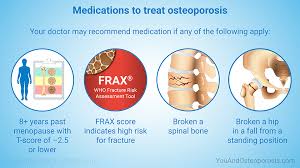Osteoporosis Management | Expert Care & Advanced Treatments
Osteoporosis is a progressive medical condition that weakens bones, increasing their risk of fractures, particularly in the spine, hips, and wrists. It’s often referred to as a "silent disease" because it usually develops without noticeable symptoms until a fracture occurs. As osteoporosis commonly affects older adults and postmenopausal women, it is considered a major global health concern. Effective osteoporosis management is crucial to not only prevent fractures but also to improve bone density, reduce pain, and enhance overall quality of life.
Why Choose Osteoporosis Management?
While osteoporosis can affect individuals of all ages, it becomes more prevalent as we age, particularly after menopause in women and with advancing years in men. Early detection and effective management of osteoporosis can help significantly reduce the risk of fractures and complications related to weakened bones.
Thanks to advancements in medical research and treatments, individuals diagnosed with osteoporosis now have access to a variety of therapies that can manage bone loss and improve bone health. The cost of osteoporosis management is often more affordable than many patients anticipate. With access to a wide range of advanced treatment options, medications, and diagnostic tests, patients can receive personalized care tailored to their specific needs, helping them stay active and independent.
Benefits of Osteoporosis Management
- Prevention of Bone Fractures: Proper management significantly reduces the risk of fractures by strengthening bones and preventing further bone loss.
- Improved Bone Density: By using medications and implementing lifestyle changes, osteoporosis treatment helps restore bone density, reducing the likelihood of fractures in the future.
- Customized Treatment Plans: Treatment plans are individualized, taking into consideration the severity of the condition, other underlying health conditions, and the patient’s lifestyle. This personalized approach ensures optimal results.
- Minimally Invasive Procedures: Many treatment options, including certain surgical interventions, are minimally invasive, which means faster recovery times, fewer complications, and improved outcomes.
Types of Osteoporosis
There are two main types of osteoporosis, each with distinct causes and management approaches:
1. Primary Osteoporosis:
- Cause: This form of osteoporosis occurs naturally as people age, resulting in reduced bone mass and density. It is most commonly seen in postmenopausal women and elderly men.
- Management:
- Medications: Bisphosphonates, Denosumab, and Selective Estrogen Receptor Modulators (SERMs) are commonly prescribed to prevent bone loss and fractures.
- Supplements: Calcium and Vitamin D are essential in supporting bone health and maintaining bone density.
- Exercise: Weight-bearing exercises, like walking and strength training, are highly effective in maintaining and improving bone health.
2. Secondary Osteoporosis:
- Cause: This type of osteoporosis results from underlying medical conditions such as hyperthyroidism, or due to lifestyle factors such as poor diet or long-term use of medications like steroids.
- Management:
- Treating Underlying Conditions: The key to managing secondary osteoporosis is addressing the underlying cause, whether it’s adjusting medications or managing conditions like hyperthyroidism.
- Medication Adjustments: If steroids or other medications are contributing to bone loss, doctors may recommend switching to alternative treatments.
- Lifestyle Changes: Emphasizing a healthy, balanced diet rich in calcium and Vitamin D, engaging in regular physical activity, and quitting smoking are essential steps in managing secondary osteoporosis.
Osteoporosis Treatments Available
Osteoporosis treatment involves a combination of medications, lifestyle changes, and advanced therapies that address the condition based on its severity. Here are some of the most common approaches:
Medications for Osteoporosis
- Bisphosphonates (e.g., Alendronate, Risedronate): These medications help slow down bone loss and increase bone density, significantly reducing the risk of fractures.
- Hormone Replacement Therapy (HRT): HRT is especially beneficial for postmenopausal women as it helps maintain bone density and prevent further bone loss caused by the decrease in estrogen levels.
- Calcitonin: A hormone that helps regulate calcium levels in the bones and promotes bone density.
- Denosumab: A monoclonal antibody that inhibits bone resorption, reducing the risk of fractures, particularly in high-risk individuals.
Lifestyle and Nutritional Support
- Exercise Programs: Engaging in weight-bearing activities like walking, jogging, and strength training can help improve bone density and prevent falls.
- Supplements: Adequate intake of calcium and Vitamin D is critical to maintain bone health and ensure proper bone formation.
- Dietary Changes: A well-balanced diet, rich in calcium, vitamin D, and magnesium, helps promote healthy bones. Foods like leafy greens, dairy products, and fortified cereals are great sources.
Advanced Therapies
- Selective Estrogen Receptor Modulators (SERMs): SERMs help mimic the bone-protective effects of estrogen without the associated risks. They are particularly useful for postmenopausal women.
- Teriparatide: A synthetic form of parathyroid hormone that stimulates new bone formation, making it a good option for people with severe osteoporosis.
Surgical Interventions
- Vertebroplasty/Kyphoplasty: These minimally invasive procedures are used to treat spinal fractures by stabilizing the bones and alleviating pain.
- Fracture Care: Surgical repair of bone fractures, including joint replacement surgeries in severe cases, may be necessary for advanced osteoporosis-related fractures.
Bone Density Testing (DEXA Scan)
A Dual-Energy X-ray Absorptiometry (DEXA) scan is the most reliable and accurate method for diagnosing osteoporosis. Regular bone density testing helps monitor changes in bone mass and assess fracture risks, guiding treatment decisions.
Why Seek Osteoporosis Management?
Choosing effective osteoporosis management is essential to prevent fractures, improve bone health, and maintain a high quality of life. With expert care and the latest advancements in medical technology, you can have a tailored treatment plan that suits your needs. Here's why you should seek osteoporosis management:
- Access to Specialized Care: Our team of expert osteoporosis specialists offers personalized care and guidance to help you manage your condition effectively.
- Advanced Diagnostics: Bone density testing and other diagnostic tools ensure early detection and ongoing monitoring of osteoporosis, allowing for timely intervention.
- Affordable Treatments: Despite its critical nature, osteoporosis management is more affordable than many think. We offer competitive pricing on treatments, medications, and diagnostic services to ensure everyone can receive the care they need.
Get Started with Your Osteoporosis Management Today!
Don’t wait to take control of your bone health! It’s never too early to start managing osteoporosis and preventing fractures. Whether you need a bone density test, a personalized treatment plan, or access to the latest osteoporosis therapies, we’re here to guide you every step of the way.
Contact us today to schedule your initial consultation with one of our expert osteoporosis specialists. Our team is ready to help you improve your bone health and reduce the risk of fractures.
FAQs about Osteoporosis Management
- What is osteoporosis and how is it managed?
Osteoporosis is a condition characterized by weakened bones. It is managed through medications, lifestyle changes, and regular monitoring through bone density testing.
- What is the cost of osteoporosis treatment?
The cost varies depending on treatment type. Initial consultations may range from $50 to $150 USD, while medications can cost between $30 and $200 USD per month.
- How can osteoporosis be diagnosed?
Osteoporosis is diagnosed primarily through a bone density test (DEXA scan), which measures the strength of bones and detects any loss of bone mass.
- What medications are commonly prescribed for osteoporosis?
Common medications include bisphosphonates, hormone replacement therapy, calcitonin, and denosumab.
- Can osteoporosis be prevented?
Yes, osteoporosis can be prevented by maintaining a healthy lifestyle that includes regular weight-bearing exercises, a balanced diet rich in calcium and vitamin D, and avoiding smoking and excessive alcohol consumption.
- What are the side effects of osteoporosis medications?
Side effects can include gastrointestinal discomfort, joint pain, or in rare cases, complications related to prolonged use. Always consult your doctor for guidance.
- Are there any non-surgical treatments for osteoporosis?
Yes, osteoporosis can often be managed effectively through medications, dietary changes, and exercise. Surgical options are usually considered when fractures occur.
- How often should I get a bone density test?
Typically, individuals at risk for osteoporosis should have a bone density test every 1 to 2 years, but this may vary depending on your doctor’s advice.
- Can lifestyle changes help manage osteoporosis?
Yes, weight-bearing exercises, proper nutrition, and calcium and vitamin D supplementation play a crucial role in managing osteoporosis.
- Is osteoporosis treatment safe?
Yes, osteoporosis treatments are generally safe, but it’s essential to follow your doctor’s recommendations to avoid potential side effects.


